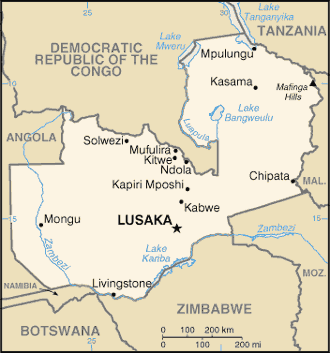
I was reading the news feed for the eLearning Africa 2010 Conference in Lusaka, Zambia, later this month. An interesting article discussed a recent study on the use of Open Education Resources (OER) in schools in Zambia and how these were being adapted to local conditions and curricula.
Often, there is still a sense of technological determinism when discussion eLearning in Africa, but it is often hard to avoid (and I certainly want to). Without hardware and persistent access, a good deal of this discussion can be merely academic. There are some initiatives underway (all over the African continent, but Zambia in this content) to remove this technological barrier, including the following:
“SchoolNet Zambia is part of SchoolNet Africa, operating in over 35 countries on the Continent. SchoolNET Zambia has established a Technical Services Centre (TSC) at Matero Boys’ Secondary School, Lusaka, and a secretariat at the Department of Electrical and Electronic Engineering, School of Engineering, University of Zambia, Lusaka. The partnership between CAI and SchoolNet Africa is a campaign aimed at bridging the “digital divide” by providing one million computers to schools in Africa, mainly for educational purposes.”
This is promising, but it still speaks to this idea that technology acquisition is essentially the same as an improvement in education. My experience hasn’t proven that to be true as hardware requires upkeep, maintenance, and general technical literacy to be useful in any capacity. I would love to hear of cases where that wasn’t the case, though; instances in which the acquisition of ICT led somewhat smoothly to an improved information literacy towards a knowledge production end.
My general sense is that actually systematically determining curricula and educational needs at the national and district levels and then acquiring ICTs to fit those needs is much more effective. Otherwise, the curricula is repurposed to fit the technology and not the other way around.
A good parallel would be online searching, and pardon me for falling back on what I teach often in classes and webinars. For those without the background in online information retrieval and academic databases (mostly everyone outside of faculty and graduate students and not always then either), it helps to chart a search strategy before turning to the computer. To identify a goal, a series of terms, connections between these terms, a conceptual model. Only when that is established should the student turn to the computer and begin searching. Search statements and models can be adjusted on the fly to cover knowledge gaps.
The same is true of curricula. What are the end goals of this national curriculum? To make a print literate and information literate society? To be knowledge producers, innovators? If so, technology becomes an a la carte menu; choose what you need, ignore the rest.
What was more promising to me was the second part of SchoolNet’s plan.
“SchoolNet’s vision is to transform educational systems from an industrial model (learning by assimilation) to a knowledge-based model (learning by participation) in order to prepare the youth of Zambia to effectively enter a global economy based on knowledge, information and technology. ”
There it is; exactly what I wanted to hear. They conducted this study on OER use in Zambia and how teachers were refitting these materials for the Zambian environment and the results did not seem definitive.
“Research results revealed that the main reasons given by teachers for choosing a resource were that the content should be up-to-date, match the grade level of the students and be ready-to-use. Mr Mwale pointed out that over fifty percent of the respondents gave these reasons.
The results, however, showed a small positive correlation between “It could be adapted to meet my needs” and “It can be broken into smaller pieces to remix”, indicating that the ability to be modified does not always mean breaking the resources into smaller pieces. Only 41 percent of the materials classified as modifiable were viewed as important.”
What is surprising is that just over 50% of the respondents said it was important that OERs should be ready to use, while only 41% of the materials classified as modifiable were viewed as important. What we don’t know is if the modifiable materials were perceived as less important because they were just poorly constructed or if their ability to be modified lessened their importance as compared to materials that were ends in themselves.
Overall, it is encouraging that Zambia is going the route of not only trying to use OERs, but also measuring their efficiency and perception. Perception is important here, not merely a temporary stumbling block. This is monumental change we are talking about here in Zambia, this transition from assimilation to participation, from knowledge consumption to knowledge production. This change will bring about shifts in pedagogy, in technology, in the role of the student and the teacher. There will be resistance.
The closing of the report said:
“They also revealed the requirement for strategies to help remove the perception that computers were just “toys in schools”.”
A small part of the perception issue, but education not equaling fun is an issue that must be overcome to move forward with a true participatory education.
By the way, if you think OER isn’t taking hold in Africa, check out sites like OER Africa and their list of projects.


[…] 8, 2010 · Leave a Comment Brenda Zulu has posted on OER quality assurance in Africa. Michael Sean Gallagher has a related post on OER in Zambia. From Zulu’s post: Research results revealed that the […]